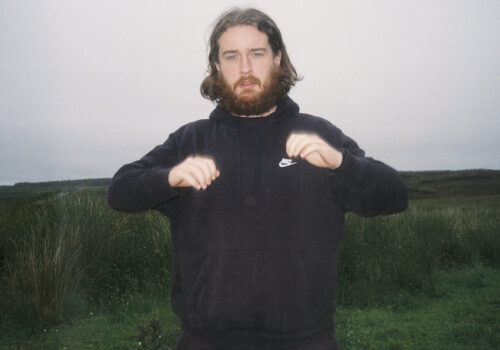What is Direct Provision?
Words: Dylan Murphy
A system intended to be a temporary measure has resided in Ireland for over 20 years. It’s stripping over 7000 people of their basic freedoms and decimating their mental health.
Friday 25 May saw George Floyd, an innocent black man killed at the hands of a white Minnesota police officer. Though a familiar story in the United States the response has been anything but jaded, with people of all ages, ethnicities, genders and backgrounds standing in solidarity with the black community of America.
While police brutality and violence against black civilians is rampant on the other side of the Atlantic, it presents only one arm of racism. Oppression knows no borders and subsequently outrage has spilled across the world with protests erupting in countries such as the Netherlands, New Zealand and Ireland. This mobilisation has given the opportunity to reflect on the types of racism that exist within our own country, and though violent attacks do occur in Ireland, one of the most pervasive forms of racism is permeated through one of our own oppressive structures – Direct Provision.
Direct Provision is the system of temporary housing for people seeking international protection in Ireland and is currently made up of around 40 centres ranging from old hotels to caravan parks.
Set up in 1999 as an emergency response to increasing numbers of people seeking refuge, the system still exists 20 years later. Despite complaints, it remains a billion-euro industry that profits off the displacement of vulnerable people with wealthy businesspersons reimagining spaces to obtain multi-million euro government contracts.

After declaring their intention to seek protections, people are sent to reception centres before moving onto the various accommodations across the country. Though intended to be a temporary measure whilst asylum applications are reviewed, there’s often little communication of predicted waiting times, subsequently compounding any trauma that caused them to seek refuge. On average residents stay in Direct Provision for 14 months, though many have stayed for 10 or 12 years.
And while residents receive provisions of basic human amenities like food, water and shelter during these extended periods they are largely sub-par, compounding an already difficult situation for the inhabitants.
In addition to the skeletal and low level amenities, the shared spaces are often incredibly cramped. These claustrophobic settings are worsened by the fact managers and staff can enter your room at any time – creating a severely intrusive environment.
Though it is claimed that residents now have the opportunity for self-catering, this is only in extremely rare circumstances and is often limited to nothing more than a kettle and a microwave. There is no choice over what food is provided and subsequently it’s often deemed inadequate or not culturally appropriate, amplifying the already existing lack of agency and freedom.
Add this to a growing list of issues that includes reports of rodent infestations.
The lack of basic freedoms encountered within the premises is mirrored by a similar experience outside the centres. Residents face the almost impossible task of integrating into the surrounding communities with little opportunity to venture outside.
Financial subsidies provide potential to grant some sense of empowerment however, adults living in asylum centres receive only a measly 38.80 euro per week and children receive only 29.80 euro per week. And it was only in 2018 that residents that met specific criteria were granted permission to work. Though only some 15 per cent are now said to be in employment, it represents only a small minority that have access to this basic freedom.
Children make up around one third of people in the Direct Provision system and they also suffer from isolation that presents itself in a different way. The young children living in Direct Provision don’t receive support from the state for extracurricular activities which they otherwise can’t afford, often leading them to spending more time indoors, consequently affecting their mental health and further excluding them from normal life in the community.
Furthermore, they can’t access third level education like university because they don’t qualify for free fees. Consequently, after teens finish their leaving cert it is not possible to move on to college.
Now, situate this among a housing crisis and a global pandemic. Those who finally get their application granted often can’t afford housing and end up remaining in DP whilst those who remain in the cramped centres face the almost impossible task of social distancing.
Having left in search of a better life, those seeking international protection are left in a state of purgatory. Left waiting for indefinite time periods means there’s no opportunity for closure from the situation they have fled and you can be sure a for-profit system’s top priority is not the well being of the people who reside there. It’s no surprise that a 2013 report from the European Commission Against Racism and Intolerance found that 90 per cent of residents suffer from depression within six months of being in the system.
Direct Provision houses extremely vulnerable people and to further ostracise them from society whilst stripping them of the very universal human rights they often fled to obtain is beyond cruel.
Making ourselves aware of the systemic problems within our own countries is the first step to curing them. We have to ensure that opposition to oppression isn’t a trend, that starts with first educating ourselves and then taking action.
Click here for a thread on essential readings on Direct Provision and why it must end.
Click here to support MASI.
Click here to sign a petition to end Direct Provision.





